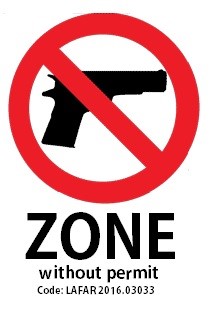We Register Cars Every Year, Don’t We? Why Not Guns?

Every year, I renew my auto registration. I put a bright colored sticker on my license plate that shows the expiration month. I don’t like it, but I do it.
Why? Because if I don’t, I will be pulled over and ticketed. If I continue to ignore the law, I will face having my car impounded. If I don’t pay the impound fees I risk losing the car altogether. As a result, the State of California collects money from my auto ownership based on the value of the car and they have up to date records on most of the vehicles in the State.
While driving is a privilege and not a right, there are similarities between owning a car and owning a gun. How often have we been told that an automobile is a lethal weapon? If I have one or several DUIs or commit some horrible crime that involves my car, I could lose the privilege of driving a car, face jail time, or both. And evidence of the offense would be carried on my driving record for several years after I have paid my debt to society.
I propose that gun registration be an annual requirement of gun ownership. Here are the benefits:
- Reduction of guns based on the expense of maintaining dormant guns
- Increased funds to enforce gun registration laws and maintain gun intelligence
- Registration could be tied into City, State and Federal Records (start local)
- The annual gun registration database would maintain a record of gun purchase, ownership of the gun and of the gun owner including criminal record, warnings from physicians
- Family members and friends could send warnings to be annotated on the registrant’s record
- Impounding of guns would be made easier if laws were passed to do so
- Proper sale of guns would the responsibility of the owner (same as auto and smog certificates)
- Stockpiling of guns would be reduced due to:
Annual Local Gun Registration Law Proposal
- A local Firearms Council would need to be established for each community. For incorporated cities, this would likely be handled through local elections. Each community would establish its own standards of acceptable conduct. The points made below would vary by community.
- Initial registration is required for all firearms prior to taking possession, or, in the case of firearms already owned, brought into the jurisdiction.
- Annual renewal of the registration would be required on or before the registration date. Any amendment to the owner’s file such a DUI, neighbor complaint, physician report or family member warning would require the approval of the Registration Review Council to renew the registration. Guns would be impounded until the Review Council has made a determination as to the fitness of the owner to continue the ownership of the guns.
- Any person who enters a city with an established annual gun registration law, without a permit for that city will have all of their guns impounded immediately without warning or a search warrant.
- Criteria for the right to bear firearms would be established by the local Firearms Council and amended as needed to adapt to situations as they arise. These criteria would be used in influencing determinations such as the precedent of law is used in court rulings. Example: Neighbor B files a complaint on neighbor B for firing a gun on the fourth of The Firearms council would determine if this individual would have their registration permit revoked or be given a warning. Multiple infractions would likely lead to gun revocation. It would depend on each communities’ Firearms Council standard of safe and acceptable conduct.
- Registration would include owner name, current address and other identifying information about the owner of the firearm; names of manufacturer and importer; model, type of action, caliber or gauge, and a serial number of the firearm.
- Registered owners are required to report any loss, theft or transfer of the registered firearms to law enforcement within a short time of the event and to turn in their registration card or certificate upon loss, theft or transfer.
- Registered owners are required to store all firearms safely and securely
- Additional restrictions may include limitations on where registered firearms may be possessed and to whom they may be transferred (particularly relevant for certain classes of firearms such as assault weapons, 50 caliber rifles, and large capacity magazines)
Where to Start?
Start local in those municipalities that are capable of passing such a law. Ideally, ones with their own Police Department that could maintain the database. When the data shows a reduction in crime and gun violence over time, more cities will want to pass similar annual gun registration laws. Assuming a town has 30,000 (one per resident) an annual fee of $25 would raise $750,000. Higher fees would produce higher income. A sliding scale could be considered based on value and age of guns.
A Technologically Enhanced Version.
Annual registration in and of itself will bring many benefits. Owners of guns could be required to keep a copy of the registration with the gun at all times. If the basic concept of annual registration can be made law, a technology-enhanced version would soon follow. Using GPS technology and micro-sized batteries (found in cell phones) an annual “sticker” with the embedded chip could be applied on, or embedded in the gun. The benefits would be:
- Immediate visual recognition of gun registration compliance
- Triggers notification to owner and law enforcement when the registration expires
- Enable tracking of / location of firearms
